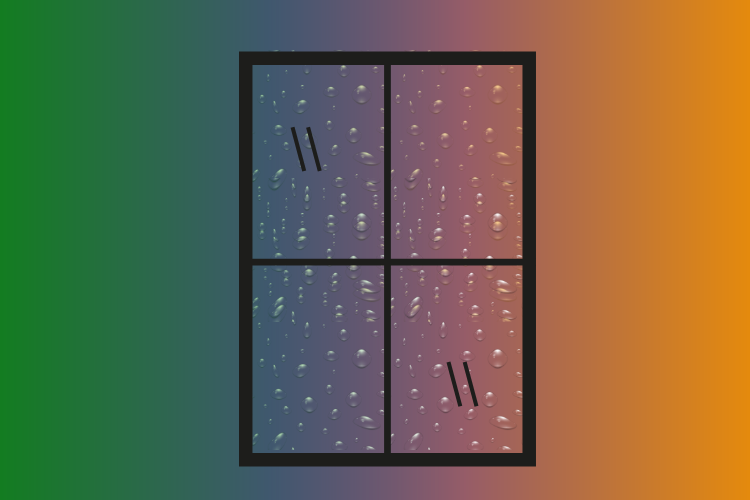It’s one of the most common problems you can find with double glazed units.
You will recognise it as annoying condensation between two panes of glass in double glazing,
You might just think the only option once condensation appears is for you to buy new windows.
But is this really the only choice you have?
Check your guarantee on double glazing condensation
Modern double glazed units you might buy, especially uPVC ones, are designed to be completely sealed units.
These are designed to not let condensation build up in your double glazed windows at all.
If condensation in double glazing does begin to appear as the weather turns colder, check what guarantee you got when your windows were fitted.
A standard double glazing guarantee you will find is likely 10 years.
Some firms offer you 15 or even 20 years’ guarantee.
If you still have the paperwork you may be in luck.
The company you bought the windows from might carry out remedial work for you free of charge.
You might even be able to get the windows replaced by the window company free of charge.
Condensation in double glazing (inside glazing)
If the condensation in double glazing is forming on the inside of your windows, this is almost always down to poor ventilation in your home.
There is likely too much humidity in the air in your property.
You should open windows wherever possible.
Try to keep doors open to allow air to circulate freely through your house.
You should also avoid drying washing inside.
If your problem persists, think about getting a dehumidifier to suck moisture out of the air.
If your double glazed windows have trickle vents at the top which can be opened and closed, keep them open at all times of year.
Condensation in double glazing in the gap between the panes
There are usually some easy solutions to improve ventilation in your property and deal with condensation forming on inside of windows.
Condensation in double glazing which forms between the two panels is a different matter.
There are many different reasons for condensation forming in your home of course.
Sometimes it is down to very transient weather conditions beyond your control.
This will mean that condensation only lasts for short periods and there is little that you can do about this.
If condensation in double glazing lasts for longer, this could be down to seals around your units beginning to fail and allow moisture in.
High levels of moisture in the surrounding walls after having building work done in your property can also contribute.
Your units may also simply be deteriorating because of age.
If you suspect condensation is temporary and caused by the weather or building work, then there is no need for you to do anything.
If you suspect the seal might have failed, or that the windows are just getting too old, then options are limited.
It is possible for you to get a double glazing company in to reseal the units with a special drying agent.
They also might be able to replace your seals which have failed.
This procedure has varying degrees of success, and could be quite an expensive course for you to take.
If your double glazed units have deteriorated through age, then the only solution is a complete replacement.
Don’t Ignore Condensation In Double Glazing
Whatever the reason for your condensation, don’t ignore it.
You should deal with ventilation issues promptly.
Remember - the reason you have double glazing is to save money on energy bills.
A window with failed seals won’t be keeping your house warm.
You should have it repaired or replaced as soon as possible.
If you do need to compare quotes for double glazing then you are free to use our services at Top Tradespeople.
We can help you to get multiple estimates for this kind of project.
Alternatively, if you are just looking to get an idea of prices for double glazing, you can visit our cost guides section.
